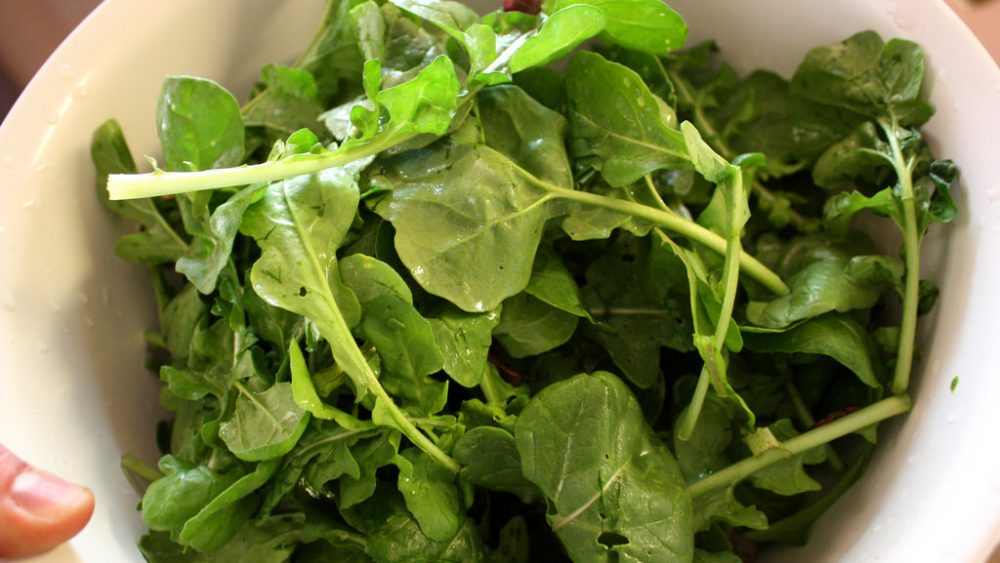
Advertisement
If you’re on the road to a healthy lifestyle, a diet rich in nutrient-filled veggies is, for sure, part of your regimen. Many vegetables possess numerous health benefits, but some of the healthiest kinds are the leafy greens.
One such veggie is a cousin of the cauliflower, radish, and kale. The arugula (Eruca sativa, Brassicaceae) is a leaf vegetable known by other names, such as rocket salad, garden rocket, rucola, roquette, and colewort. Its leaves have a distinctive peppery flavor that goes well in fresh salads.
A casual grocery shopper might mistake arugula for some fancy lettuce, but to frequent eaters of cruciferous vegetables, arugula is quite the catch when it comes to its wide range of health benefits.
Much like its cousins in the Brassicaceae (cruciferous) family, arugula possesses various medicinal properties, ranging from supporting eye health and bone health, to fighting cancer.
What is it good for?
Arugula is known to have protective properties against cancer. Like many other cruciferous vegetables, arugula contains phytochemicals such as thiocyanates, sulforaphane, or indoles. These compounds are known to possess potent anticancer and detoxifying mechanisms.
Studies suggest that these compounds help fight prostate, breast, cervical, colon, and ovarian cancers. (Related: Arugula is known as an aphrodisiac and as a top anti-cancer food.)
In addition, arugula is abundant in vitamin K, which supports calcium regulation for healthy bones and skin; promotes bone formation; and, helps prevent osteoporosis. A hundred grams of arugula, around half a cup, contains around 109 mg of vitamin K, which is 136 percent of the recommended daily intake.
Arugula is also abundant in antioxidants lutein and zeaxanthin, which help protect the eyes from ultraviolet (UV) light and high-intensity blue light which strain the eyes and could lead to vision problems.
Moreover, arugula is an excellent source of carotenoids, which slow down the process of macular degeneration, a condition that causes cataracts. Increasing your intake of carotenoids may reduce your risk of developing this classic symptom of old age.
Arugula is also rich in folates, which makes it a wonderful addition to any pregnant mother’s diet. Folates are known to reduce the development of birth defects, as well as promote the production of serotonin and red blood cells.
Besides preventing birth defects, folate is also being studied for its preventative effect against other health conditions such as heart disease, diabetes, Alzheimer’s and depression.
Leafy greens like arugula are a great source of chlorophyll, which is known as an excellent detoxifying agent and blood cleanser.
Arugula is also superior to some other leafy greens because, unlike other varieties, arugula is low in oxalates, which are chemicals that inhibit the absorption of minerals into the body. This allows the body to absorb more minerals from the other foods you eat.
Adding the nutrient-rich arugula in your daily diet will also promote healthy weight loss. Overall, it’s a good dietary choice for a healthy body and keeping the mind clear and focused.
Quick serving tips
Start including some delicious arugula into your meals with these quick fixes:
- Green salad: Make a simple yet healthy green salad with some fresh arugula, lettuce, radicchio, and parsley. Mix them in a bowl, then add olive oil, salt and pepper, and some lime juice for flavor. You can also add other vegetables, fruits, and nuts.
- Cheese salad: Mix fresh and dry arugula and thin slices of Parmesan cheese in a bowl. Add some sliced onions and lemon juice, and season your salad with salt and pepper.
- Pasta: Mix arugula and lime juice in a bowl, and season it with salt and pepper. Add your cooked pasta to the arugula mix, then add some olive oil, and cheese.
Visit Veggie.news to learn more about other leafy greens and their health benefits.
Sources include:
Advertisements







